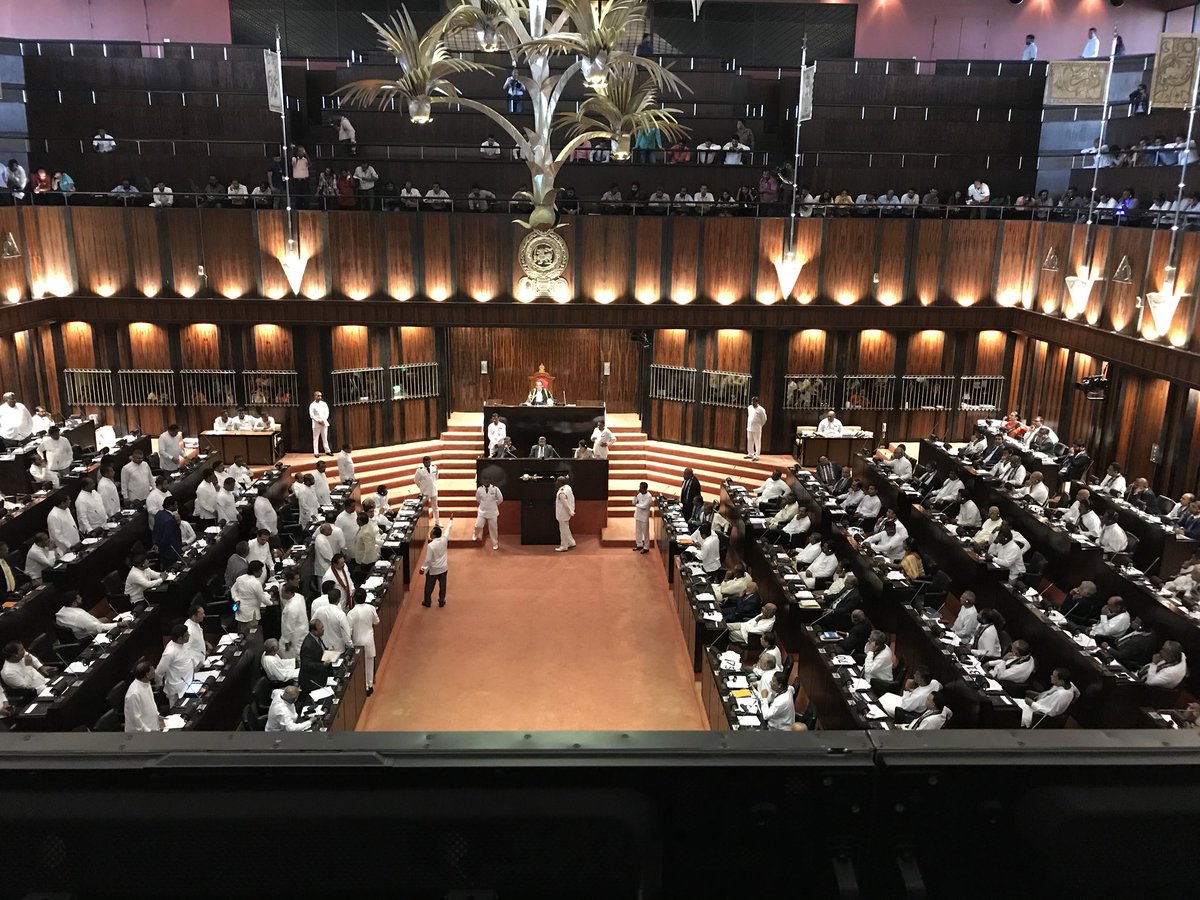A political deadlock threatens Sri Lanka’s economic recovery

A political impasse threatens Sri Lanka’s profitable recovery.
Political stalemate threatens Sri Lanka‘s profitable recovery. Sri Lanka’s press approved a plan to repeal indigenous emendations that gave President Gotabaya Rajapaksa broad administrative powers, fulfilling one of the crucial demands of citizens protesting his profitable programs as the ruling family tries to retain power.
According to a media report, Sri Lanka’s Parliament Speaker, Mahinda Yapa Abeywardena, blazoned on Monday that he’d called a meeting of party leaders for Thursday to bandy crucial indigenous reforms.
The decision comes after officers from the main opposition party blazoned on Monday that they had gathered enough support for a no-confidence vote against the government. Demonstrators angry about Asia’s fastest affectation and food and energy shortages have demanded that the administration repeal the so-called “20th correction,” which grants the chairman extraordinary powers, while also calling for the Rajapaksas to step down.
This concerns the Rajapaksas’ political survival. This administration is strong at communicating, but no factual plans have been bared. The opposition is in the same boat.
It’s delicate to tell who’s truly backing the administration and who’s siding with the opposition right now, but neither side is harkening to the demonstrators who just want the Rajapaksas to step down.
On May 4, Parliament will reconvene for three days, and it’s probable that the presidential nominations and the no-confidence stir will be bandied about. Neither the administration nor the opposition, still, has handed a schedule for the process.
Two private members’ bills have been submitted to the speaker to repeal the so-called 20th correction, which grants the chairman unknown power in holding ministries, dismissing ministers, and controlling the election commission, police, and anti-corruption agency.
The Sri Lankan chairman has called a meeting of party leaders to bandy indigenous reforms. She’d convene a meeting of party leaders on Thursday to bandy crucial indigenous reforms.

Sri Lanka’s main opposition party, Samagi Jana Balawegaya (SJB), on Thursday unveiled an Indigenous Correction Bill which, among other effects, seeks to abolish the country’s presidential system of governance, which has been in place since 1978, and replace it with a system that strengthens the indigenous republic.
According to the Daily Mirror review, the meeting was blazoned by President Abeywardena in a letter to opposition leader Sajith Premadasa.
The SJB submitted to the Secretary General of Parliament a draft 21st Constitution Amendment Bill that included proffers to abolish the current administrative presidential system.
Sri Lanka’s profitable extremity turned into a full-fledged political extremity after a March 31 kick turned violent, with police attacking protesters.
The opposition is considering a vote of no confidence in the government and indictment proceedings against the chairman.
After winning a landslide victory in the general choices in August 2020, the Rajapaksa family tensed their grip on power by amending the Constitution to restore presidential powers and install close family members in crucial positions. In his 2019 presidential bid, in which he sought full presidential powers over Congress, Rajapaksa won a resounding victory. Sri Lanka is in the midst of a profitable extremity not seen since its independence from the United Kingdom in 1948.
The proffers for the administration and the no-confidence stir may be brought up when Parliament reconvenes on May 4 for three days. Still, neither the government nor the opposition has handed down a schedule for the procedure.
Large-scale demurrers are taking place across the islet nation against the government’s mismanagement of the debt-ridden frugality, which is reaching its most profitable extremity.
Funding Race
After the opposition rejected offers to form an each-party press, the government and the chairman’s opponents have been pursuing separate processes to resolve the political fermentation in Sri Lanka once a month. Following massive demurrers over food and energy dearths, the former press abnegated, and the ruling coalition appeared to lose its simple maturity in congress.
The Rajapaksa family and their sympathizers have only lately stated intimately that they’re considering repealing the administration’s administrative powers.
Sri Lanka is contending to acquire finance from creditors similar to India, China, and the International Monetary Fund. The IMF reiterated its demand on Tuesday that Sri Lanka strain financial policy to combat affectation, boost levies to help stabilize its finances, and pursue a flexible exchange rate as part of larger financial and debt operation reforms.
“The most pivotal problem is to develop a credible and cohesive macroeconomic policy that tackles the country’s significant vulnerabilities,” Anne-Marie Gulde-Wolf, interim head of the Asia and Pacific Department, said, adding that the two sides had “fruitful specialized exchanges on negotiating medications.
Gulde-Wolf also emphasised the significance of progress toward debt sustainability as backing and praised the country’s amenability to work with creditors. Sri Lanka has neglected to appoint fiscal and legal advisers to supervise a restructuring, a vital step toward releasing emergency backing from the IMF, despite advising before this month that it would cease paying its foreign scores.
“It may appear that political extremity and the IMF addresses are not connected. International players, on the other hand, need to see stability and know with whom they’re dealing or cooperating,” Fonseka of the Center for Policy Alternatives stated.



